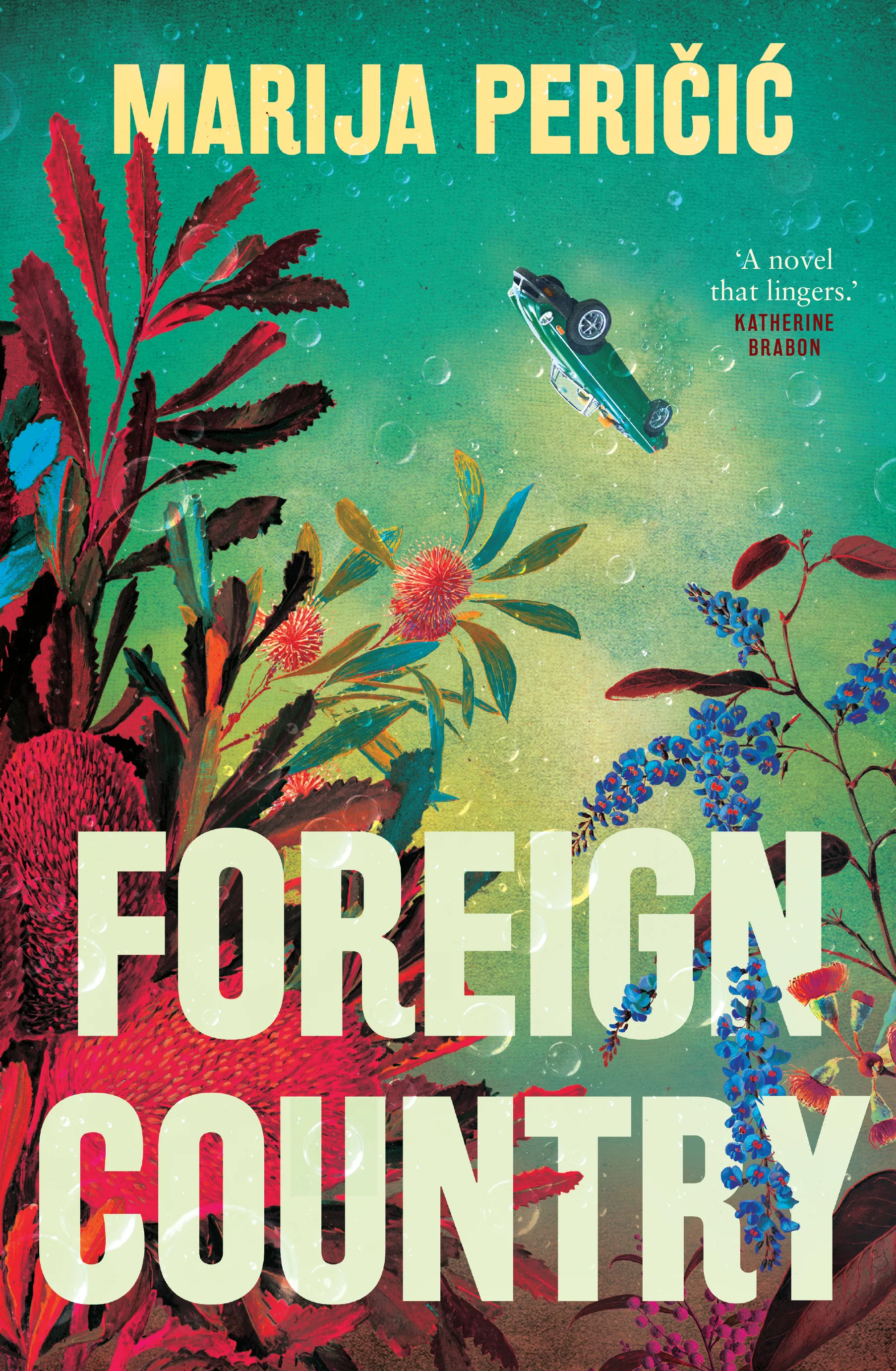
- Free Article: No
- Contents Category: Fiction
- Review Article: Yes
- Article Title: Hard-to-see lives
- Article Subtitle: Peričić’s Gothic third novel
- Online Only: Yes
- Custom Highlight Text:
What does it mean to have a past you are estranged from? In Australian-Croatian author Marija Peričić’s third novel, Foreign Country, the title recalls the familiar L.P. Hartley line, ‘the past is a foreign country’, and stretches its metaphorical coverage to include the terrain of grief, childhood, the dislocation of immigrating, and even the afterlife.
- Book 1 Title: Foreign Country
- Book 1 Biblio: Ultimo, $34.99 pb, 272 pp
- Book 1 Cover Small (400 x 600):

- Book 1 Cover (800 x 1200):

- Book 1 Readings Link: https://www.readings.com.au/product/9781761154218/foreign-country--marija-pericic--2025--9781761154218#rac:jokjjzr6ly9m
The novel follows Eva Novak, a palliative care nurse functioning on autopilot since the accidental death of her young daughter Gracie. When she is summoned from abroad to Australia by a letter from her estranged, older sister Elisabeta (also known as El), Eva arrives at her sister’s remote cabin near Bendigo to find Elisabeta has passed away. So begins a process of reckoning with her sister’s role in Eva’s daughter’s death and of their own childhood, which began in the former Yugoslavia.
‘Lives are long, and hard to see,’ writes Joshua Rothman in ‘Becoming You’, an essay for The New Yorker about how we view the continuity of our lives. Rothman evokes the useful foreign country metaphor to underscore how profoundly some people feel divorced from their own pasts. In Eva’s case, this disconnect must be bridged as she packs up her sister’s home.
The early stages of this process are suffused with a sort of Gothic realism: it is constantly raining at the cabin, the body is a source of the strange and macabre, and nightmarish imagery proliferates. The description of Elisabeta’s corpse as Eva finds it is almost Francis Bacon-esque – the body emerges from the room ‘silent and still and strange’ and ‘sends out a charge to every corner’.
Peričić is no stranger to the Gothic mode: her previous novel, Exquisite Corpse (2023), followed a doctor’s obsession with a patient, which endured even after her death. Where the Gothic realism in Exquisite Corpse serves to engender compassion for the story’s victims, in Foreign Country it is a way of expressing the haunted, melancholy world of Eva.
Nowhere is this clearer than in a dream Eva has of her late daughter Gracie playing with her dolls by a window, accompanied by ‘the acrid scent of burning plastic, of hot metal’. ‘Everything goes into slow motion’, she narrates. ‘I lift her up … but when I stand up she is limp in my hands, just a doll herself. Stark cultural differences in attitudes towards death are lightly explored in the novel, like Eva’s recollection of the Croatian way of tending to the graves of loved ones – a tradition absent in her family’s experience of contemporary Australia.
Death is also part of Eva’s ‘professional landscape’ and, as we learn more about the sisters’ lives, we find that they have been marked by an unusual number of bereavements and dislocations. The accident that claimed Gracie’s life – the tragedy of which supersedes all other deaths in the novel – cements a division in the sisters’ relationship, which is riven by a history of misapprehensions on which Eva is now forced to reflect.
‘I wanted to explore that process of misapprehending, re-apprehending and reconstituting the past,’ Peričić told Books+Publishing in April this year. Eva’s initial approach to packing up her sister’s house is clinical, her detached professional manner steering: ‘the most important thing is never to be sentimental’, she thinks. Slowly, her approach softens.
As Eva cleans out El’s house she discovers El was a writer, and excerpts from her memoir sustain a ghostly and touching conversation between the sisters. Peričić intersperses images and documents throughout the novel to create a Sebaldian textual collage, which has an affecting emotional force.
There are striking moments in Foreign Country, including a harrowing chapter wherein we learn what happened to Gracie through a stuttering echolalic recount. Yet there is a general flatness of style which renders the reading experience laboured. It is difficult to tell whether Eva’s inertness is a fault of the prose or a deliberate choice to steep us in the nightmarishly ‘slowed-down world’ of a character experiencing grief. Where El emerges as a sympathetic figure, Eva is at times frustrating and opaque as a character – as people whose minds are compromised by grief often can be. Indeed, Eva describes herself as ‘aphasic’ when called to explain her state of mind by her partner. There is also Eva’s bilingualism: as she puts it, English seems ‘flat’, incapable of meaning ‘in the same way’ as Croatian.
But if Eva is not particularly animated, her world is. A strong animism runs through Foreign Country, at times relying on prosopopoeia: hotel rooms are like huge lungs breathing, answering machines have eyes, and sofas have obscene bulges. The mine-cratered landscape outside the cabin, like Eva’s emotional state, is one of ‘sudden abysses’. In a novel strewn with these abysses, it is a relief when a stray dog turns up, as well as people from El’s life offering Eva a way back to steady warmth.
The novel ties up more neatly than expected and Eva tests the limits of one’s compassion for the bereaved – especially as regards to her blithe acceptance, then questioning, of a crucial fact about Gracie’s accident. The value of this novel lies in its patient appraisal of the corrosive effects of grief and its gentle suggestion of ways through the mire.
‘The long work of revising [one’s story] might itself be a source of continuity in our lives,’ Rothman writes. In Peričić’s novel, lives, like foreign countries, are hard to see, but revising the stories we tell ourselves can help us more accurately map the terrain – and bring us closer to those trying to do the same.


Comments powered by CComment